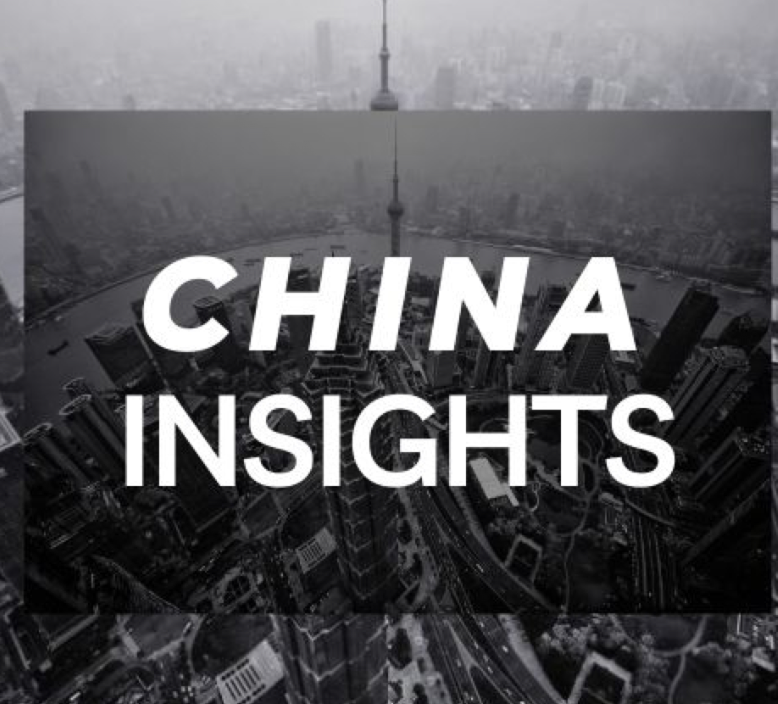Founded in Stockholm, Sweden, in 1970, Kreab is a global strategic communications consultancy with offices in 25 countries, serving over 500 global clients. Kreab advises on communication issues of strategic importance in business, finance, and politics, helping clients solve complex communications challenges and achieve their strategic goals. The Kreab Beijing team is well known for its track record of helping clients manage and strengthen their reputation through services spanning corporate communications, financial communications, public affairs, and social media. Contact Kreab at kchina@kreab.com, follow Kreab on WeChat (ID: KreabChina), or visit Kreab’s website at https://www.kreab.com/beijing.
SwedCham China Insights for the Week of April 15 - April 19 , 2024

Top news of the week:
Chinese mainland bourses jointly issue ESG disclosure guidelines for listed firms
April 15, 2023
The three bourses in the Chinese mainland jointly issued guidelines for listed companies to disclose their environmental, social, and governance impact for the first time. Effective May 1, the guidelines include 21 topics divided into three areas: environmental, social, and corporate governance.
China issues key document to tackle risks, promote high-quality development in capital market
April 16, 2023
China's State Council, the cabinet, released a sweeping guideline on April 12, only the third of its kind, to strengthen regulation, tackle risks and promote the high-quality development of the capital market, as the country moves to build itself into a global financial powerhouse.
China's GDP expands 5.3% in Q1
April 17, 2023
China’s gross domestic product grew 5.3 percent year on year in the first quarter of 2024, data from the National Bureau of Statistics showed on April 16.
China rolls out initiative to support easier payment for foreigners in China
April 18, 2023
The People's Bank of China, Ministry of Commerce, and State Administration of Foreign Exchange introduced new policy measures aimed at facilitating easier payment for foreign visitors. Focusing on improving payment convenience for various groups, mainly foreign visitors and the elderly, the notice targets key areas such as bank card acceptance, cash payments, mobile payments, account services, and publicity efforts.
China's cross-border trips exceed 141m in Q1, doubled from last year
April 19, 2023
China's inbound and outbound trips exceeded 141 million in the first quarter of 2024, marking a year-on-year increase of 117.8 percent, China's National Immigration Administration (NIA) said on April 18.
Insight of the week:
At the invitation of Premier Li Qiang of the State Council, Federal Chancellor of Germany Olaf Scholz paid an official visit to China from April 14 to 16. In one of his longest bilateral visits since taking office in 2021, Scholz spent three full days in China, visiting German companies in Chongqing and Shanghai, before heading to Beijing for meetings with President Xi Jinping and Premier Li Qiang. It was Scholz's second visit to China since he was elected German Chancellor. Scholz was accompanied by several leading German business executives and three ministers on his trip.
Scholz, who met for more than three hours with Xi on April 16, before later seeing Premier Li Qiang, said he had pressed the case for China to guarantee German firms equal market access, the protection of intellectual property and a reliable legal system. Xi noted that there is no fundamental conflict of interest between China and Germany, and they do not pose a security threat to each other. Xi emphasized the deep interconnection of the industrial and supply chains between the two countries as well as the high-level market interdependence. He said that there is vast potential for them to explore win-win cooperation, not only in traditional sectors such as machine manufacturing and the automotive industry, but also in emerging fields including green transformation, digital development and artificial intelligence. According to Xi, Chinese green tech exports have not only enriched global supply and alleviated inflationary pressure, but also contributed greatly to the response to climate change.
On the same day of Xi’s meeting with Scholz, China agreed to open its borders to beef and apple imports from Germany and facilitate pork import.
Regarding Ukraine crisis, Scholz said he had asked President Xi Jinping to exert influence over Russia to end the war in Ukraine, adding that both leaders rejected attacks on nuclear facilities. China supports all efforts towards peaceful resolution, Xi said, such as an international peace conference recognized by both Russia and Ukraine with equal participation by all parties.
The analyst believed the overall economic and trade relationship between China and Germany has eased, although the relationship remains competitive in certain areas. Beyond the bilateral level, the inspiration of Scholz’s visit to China is that dialogue and communication hold important value in times of difficulties, challenges, and changes.
